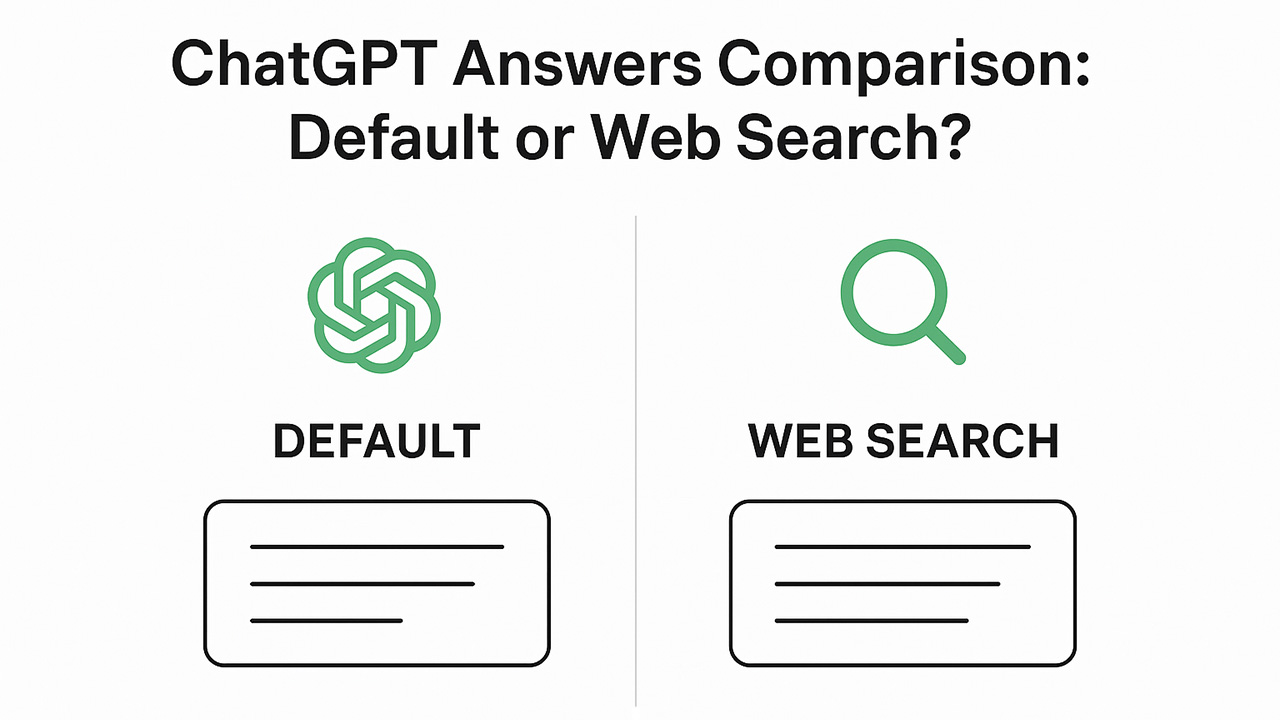Does Web Search Really Make ChatGPT’s Answers Better? I’m going to ask this AI chatbot a few questions in two different modes and compare the answers. On one side, there’s the default answer, which comes directly from the extensive knowledge it gained during its training. On the other side is the ChatGPT Web Search mode, which connects to the internet to find up-to-date and accurate information.
Which of these two answers will be the winner? Does access to real-time information always lead to a better, more complete answer, or can simple, pre-existing knowledge be just as useful?
Stick around, because in the end, I’ll show you the pros and cons of each and help you decide which one is right for your next big question.
Default Answer vs Web Search
I asked ChatGPT who is the creator of Bitcoin?
The Default Answer
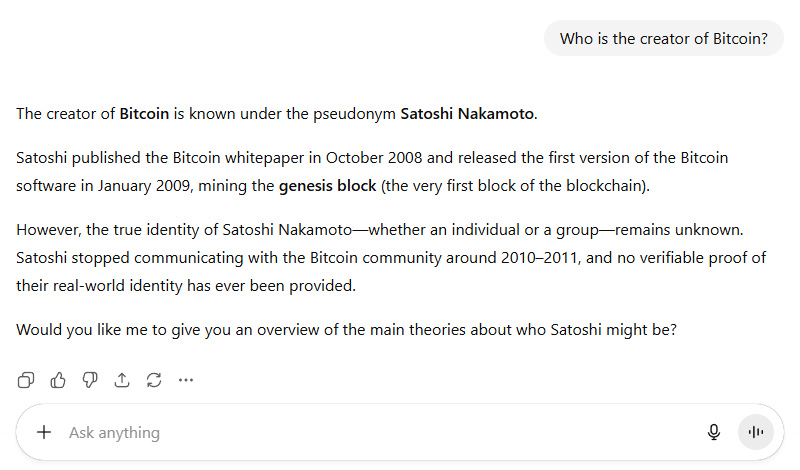
This answer is like something you would find in a textbook or an encyclopedia. It provides a complete and comprehensive definition, including foundational information like the pseudonym, the year the whitepaper was published, and even the mining of the very first block. The tone is very educational, and at the end, it opens the door for further conversation with a friendly question. This response fully answers the question, “Who is the creator of Bitcoin?” and provides all the essential information.
The Web Search Answer
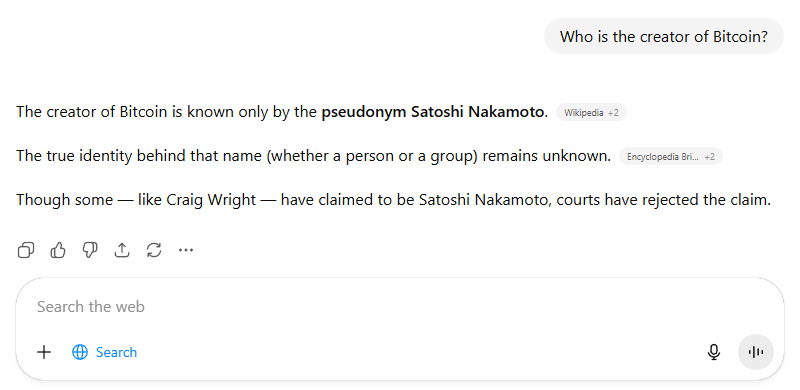
This answer does the exact opposite. Instead of providing a history, it is extremely direct and focused. It isn’t trying to teach you the whole story; instead, it’s pulling a specific and up-to-date fact from the web and delivering it straight away: that a court has rejected Craig Wright’s claim to be Satoshi Nakamoto. This answer assumes you already have the basic information and are just looking for the latest development in the story. Its tone is like a breaking news headline or an executive summary, short and to the point, focusing only on the most critical details.
Comparison of answers to the question Who created Bitcoin?
These two answers perfectly illustrate the difference between an “answer” and an “update.” The default mode gives you a full, complete answer that’s great for general knowledge. But the ChatGPT web search mode, by using fresh information, provides a targeted and highly current answers that is suitable for situations where you need a specific, verifiable fact. This comparison clearly shows that it can transform from a teacher to a news reporter by switching modes.
The next question I asked ChatGPT was what is AI?
The Default Answer
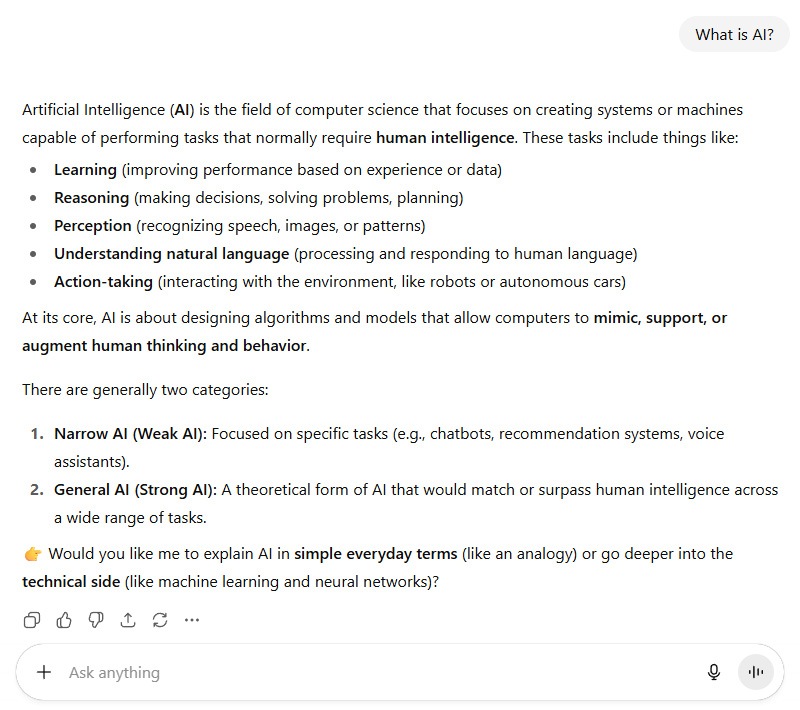
This answer is a perfect textbook definition. It’s concise and incredibly clear, getting right to the heart of what AI is and what it does. It breaks down the key tasks AI can perform and, crucially, explains the difference between Narrow and General AI. The structure is simple, using bullet points to make the information easy to digest. This answer is designed for someone who wants a solid, foundational understanding of the topic without getting overwhelmed. It’s an ideal starting point that’s both informative and approachable.
The Web Search Answer
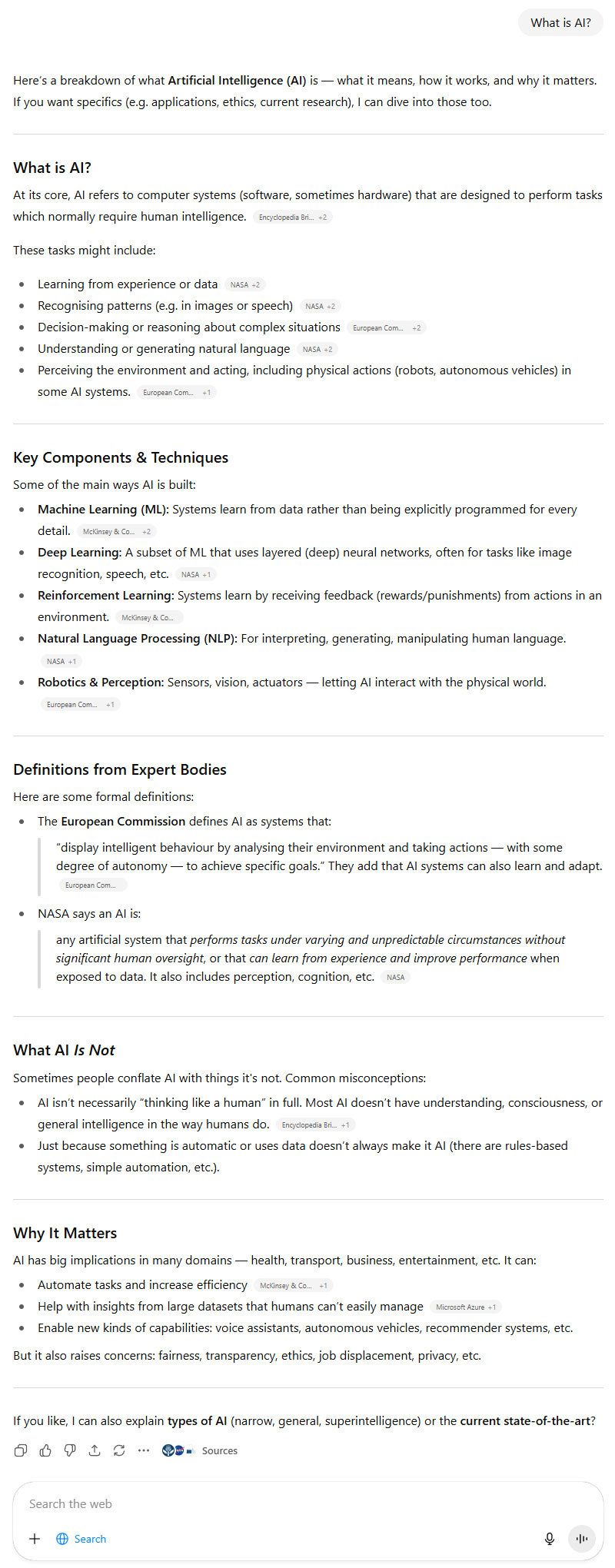
Now, this is a whole different beast. The web search version isn’t just an answer; it’s a full-on, sourced report. It starts with a comprehensive overview and then immediately proves its claims by citing expert organizations like NASA and the European Commission. The structure is fantastic, with distinct sections for “Key Components,” “Definitions from Expert Bodies,” and even “What AI Is Not.” This answer goes beyond just defining AI and instead builds an authoritative case for what it is and why it matters. It’s a complete reference guide for someone who wants to learn in a verifiable, in-depth way.
Comparison of answers to the question What is AI?
The difference between these two is striking. The default answer gives you the what: the core concepts you need to know. It’s clean and efficient. The web search answer gives you the what and the why, backed up by credible sources. It’s not just providing information; it’s providing proof. This is a crucial point: the ChatGPT web search mode isn’t just for current events; it’s for building an authoritative, trustworthy answer by showing its work. It feels less like a simple explanation and more like a well-researched academic paper.
Conclusion: Which One Wins?
After examining the answers from the two different modes, we’ve come to a conclusion: neither is an “absolute winner.” In reality, each is a tool for a different purpose.
The default mode excels when you need a complete, comprehensive definition, historical context, or an educational answer. Its answers are like a patient teacher, providing you with foundational and fundamental information.
In contrast, the ChatGPT web search mode is unmatched for finding a specific, up-to-date fact, a particular detail, or information confirmed by reliable sources. This mode acts more like a news reporter, giving you the latest information.
Ultimately, the real winner is you. By understanding the difference between the two modes, you can choose the best tool for any query and get the exact answer you’re looking for.
